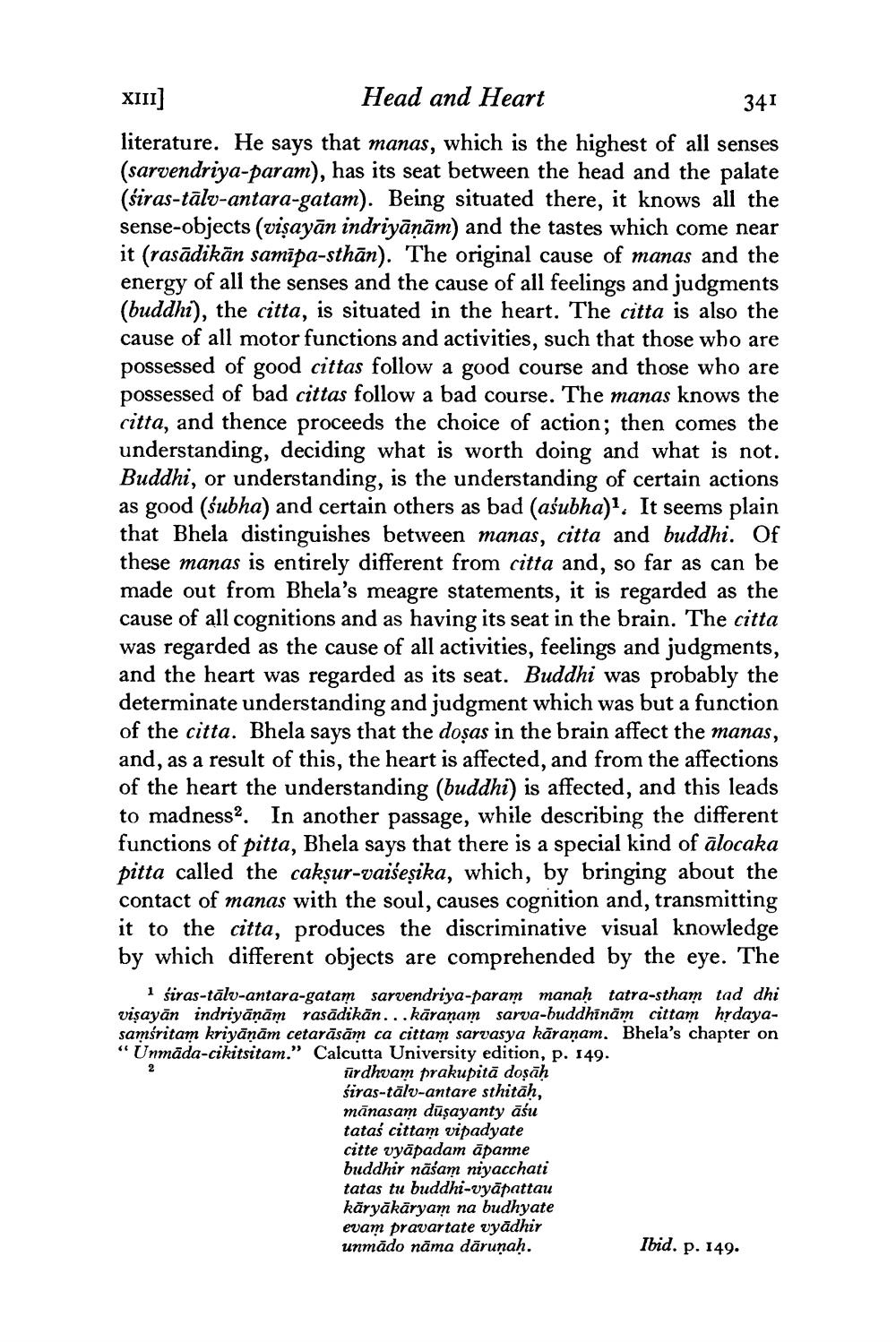________________
XIII]
Head and Heart
341
literature. He says that manas, which is the highest of all senses (sarvendriya-param), has its seat between the head and the palate (siras-talv-antara-gatam). Being situated there, it knows all the sense-objects (viṣayān indriyāṇām) and the tastes which come near it (rasādikān samīpa-sthan). The original cause of manas and the energy of all the senses and the cause of all feelings and judgments (buddhi), the citta, is situated in the heart. The citta is also the cause of all motor functions and activities, such that those who are possessed of good cittas follow a good course and those who are possessed of bad cittas follow a bad course. The manas knows the citta, and thence proceeds the choice of action; then comes the understanding, deciding what is worth doing and what is not. Buddhi, or understanding, is the understanding of certain actions as good (subha) and certain others as bad (aśubha)1. It seems plain that Bhela distinguishes between manas, citta and buddhi. Of these manas is entirely different from citta and, so far as can be made out from Bhela's meagre statements, it is regarded as the cause of all cognitions and as having its seat in the brain. The citta was regarded as the cause of all activities, feelings and judgments, and the heart was regarded as its seat. Buddhi was probably the determinate understanding and judgment which was but a function of the citta. Bhela says that the doșas in the brain affect the manas, and, as a result of this, the heart is affected, and from the affections of the heart the understanding (buddhi) is affected, and this leads to madness2. In another passage, while describing the different functions of pitta, Bhela says that there is a special kind of alocaka pitta called the cakṣur-vaiseṣika, which, by bringing about the contact of manas with the soul, causes cognition and, transmitting it to the citta, produces the discriminative visual knowledge by which different objects are comprehended by the eye. The
1 śiras-talv-antara-gatam sarvendriya-param manaḥ tatra-stham tad dhi vişayan indriyāṇām rasādikān...kāraṇam sarva-buddhīnām cittam hrdayasamśritam kriyāṇām cetarāsām ca cittam sarvasya karaṇam. Bhela's chapter on "Unmada-cikitsitam." Calcutta University edition, p. 149.
urdhvam prakupitā doṣāḥ siras-talv-antare sthitaḥ, mānasam duṣayanty aśu tatas cittam vipadyate citte vyapadam āpanne buddhir näsam niyacchati tatas tu buddhi-vyāpattau käryäkäryam na budhyate evam pravartate vyadhir unmādo nāma dāruṇaḥ.
Ibid. p. 149.




